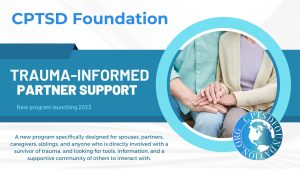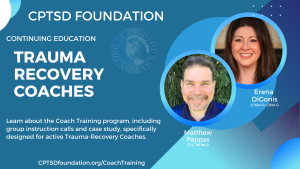We have been exploring together the ins and outs of going no contact with a family of origin. As we have seen, going no contact is a dramatic and often traumatic event that allows you some peace when your family denies your past abuse or is still abusing you.
This piece shall focus on what to do with the inevitable grief and guilt that often follows going no contact.
Part II – Going no contact with your family
Ways to Go No Contact with Your Family of Origin

There are many ways you can utilize when going no contact with your family of origin. Going no contact is to break away from your family and discourage them from reaching out to you.
One can expect the family to try to interrupt your determination to remain away by spreading rumors of how horrible you are or how sick you must be to “hurt them like that.” While these rumors are highly inconvenient and may cause you to want to lash out, it is critical to keep your wits about you and not respond.
You should block them from all your social media accounts, such as Facebook or Twitter, and your telephone. If you must, change your phone number and stay away from social media for a while to help you feel sane.
You might want to consider blocking friends of the family and other family and friends besides your immediate family as they might carry back to your family information you do not want them to have. Even innocent information leaked by someone can remind your family and spur an abusive person to reach out to you again or once again spread lies about you.
Be cautious about your accounts by adding a two-step authentication to your online account and apps, and in some cases, you may want to watch for attempts to hack your bank accounts. The best way to avoid problems is to change your passwords to something they cannot guess.
Dealing with Guilt When Going No Contact

Self-doubt and guilt often accompany going no contact with family members who have entangled in your life to cause you to be dependent upon them. They may have said they need you or have said similar to your friends who tell you about what they said. Their words and reactions to your going no contact may spur enormous feelings of guilt that is undeserved.
Lifelong guilt that has built up surrounding your interactions with your family members can make the going no contact process emotionally difficult.
However, there are four things you can do to lessen or destroy the guilt you might be feeling.
Make sure your needs are met. Make sure during the initial days of going no contact, and after that, you are doing your very best self-care and make sure you have what you need to help you get through this trying time. Using Maslow’s hierarchy of needs, ensure you have all the components met so you can focus on being happy.
Focus on you. Now might be the first time in your life you have been on your own and responsible for only your needs and not others. You may never have been capable of embracing yourself without judgment without the drama your family of origin placed on you. Spending time with friends who make you feel good and lift you up and that you add interests to your life such as exercise or a hobby, is critical. Doing these things reconnects or connects you for the first time to things that make you happy and feel joy. Work on developing self-confidence and loving yourself unconditionally no matter what trauma your family has put you through.
Pay attention to how much better things are for you now that you have gone no contact. Since you have gone no contact, it is assumed that you have discovered and are remembering that you were abused and made to live in a toxic family environment. In the early days of no contact, you might feel you overreacted and worry about the people you cut off from your life thinking you are bad. It is vital to recall how bad things were when your family member(s) were treating you poorly and making your life a living hell. Pay close attention to how much better your days go without contact from your family and the peace you have found.
Allow yourself to feel guilty. While this may seem counterintuitive, allowing yourself to feel the guilt you experience will help you examine yourself better. Once you have acknowledged your guilt’s existence, you can find ways to work through it. Perhaps you are more empathetic towards your family than they were for you; if so, you can know that you are a good and loving person. The challenge is not to give in to feelings that can derail you by believing it wasn’t really necessary. You would not have gone no contact if it were not necessary.
Trust yourself and your decision.
Dealing with Grief When Going No-Contact

Often when people choose to go no contact, they feel grief for their actions, at least for a while. After all, the family you just disowned was all you knew for most of your life, even if they were abusive.
You might be experiencing feelings of betrayal from their treatment of you and a loss of family connection, identity, and support, although those attributes were not given freely or often. If you have begun the process of healing from childhood abuse by family members, you are highly vulnerable to feeling grief for the family you never had.
Your family of origin might be trying to use toxic shame on you to force you back into their dysfunctional fold, making you feel unreal and like you betrayed them when it was they who betrayed you.
You must challenge this toxic shame and the grief it brings to your life by having a more reality-based sense of positive self-identity, potential, worth, agency, and a harmonious relationship with yourself.
There are some steps you can take to minimize the grief you may feel after family estrangement begins.
Remember going no contact will cause grief. Acknowledge to yourself that you are typical when you feel confusion, frustration, anger, fear, hurt, and a myriad of other strong emotions. Use self-compassion to guide yourself through extraditing yourself from a harmful family situation.
Try to avoid fantasizing about abusive family members. If your family of origin was abusive and crazy dysfunctional, they would always be this way. You cannot change someone else; that is impossible. Don’t waste your time thinking they weren’t as bad as you thought as this trap can lead to emotional disaster.
Take time away from triggers. If you find yourself triggered into wanting to reconnect with your abusive family members, do not act at once. Instead, take time away from that thought and allow the triggered flashback to diminish. Remind yourself that the worst is over and that you are no longer in danger. These two realities will strengthen your resolve.
Grieving over the loss of a family, even a dysfunctional one, will happen because you are a good person.
Will I Need To Be No Contact Forever?

The simple answer to the above question is no. You aren’t required by any law or obligation to remain no contact. The choice is yours. Do you want to allow people back into your life that are harmful?
You must decide under what circumstances you would contact and interact with your family of origin after going no contact. Ask yourself some questions.
- Did you intend to go no contact forever?
- What do you do if there is a death in the family?
- Have you reached a point in your healing where you can handle the crap your family will visit on you?
- Have you reached the goals you wanted to, such as finishing therapy?
If you choose to return relations with your family, keep in mind you are not a helpless and dependent person anymore and do not need to play their games or allow them to play games with you.
Ending Our Time Together
Deciding to go no contact with your family of origin is a tough decision that should not be made lightly. Talk to your therapist and think long and hard about leaving before you do.
Weigh the pros and cons of going no contact and do not romanticize it. There is nothing glamorous about feeling the guilt and loneliness you will initially experience from cutting yourself off from the chaos because that is what you’ve always known.
“You are your own refuge
There is no other
You cannot save another
You can only save yourself.”
― Guillaume Musso
“If you want to be happy, you have to study people who are happy. You have to hang out with people that are happy. Life won’t go in the direction you want by simply trying to stay positive in a life you’re not happy with. You have to know what you want and why you truly want it so badly. When you figure that out, then you need to change your current identity in order to fit the type of person you envision would make those dreams come true. Happiness is not reliant on the actions or inactions of other people. It is your “courage in motion” toward your dreams.” ― Shannon L. Alder




My name is Shirley Davis and I am a freelance writer with over 40-years- experience writing short stories and poetry. Living as I do among the corn and bean fields of Illinois (USA), working from home using the Internet has become the best way to communicate with the world. My interests are wide and varied. I love any kind of science and read several research papers per week to satisfy my curiosity. I have earned an Associate Degree in Psychology and enjoy writing books on the subjects that most interest me.




Very helpful. I am working with somebody that found your article on this subject helpful for sure.